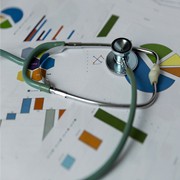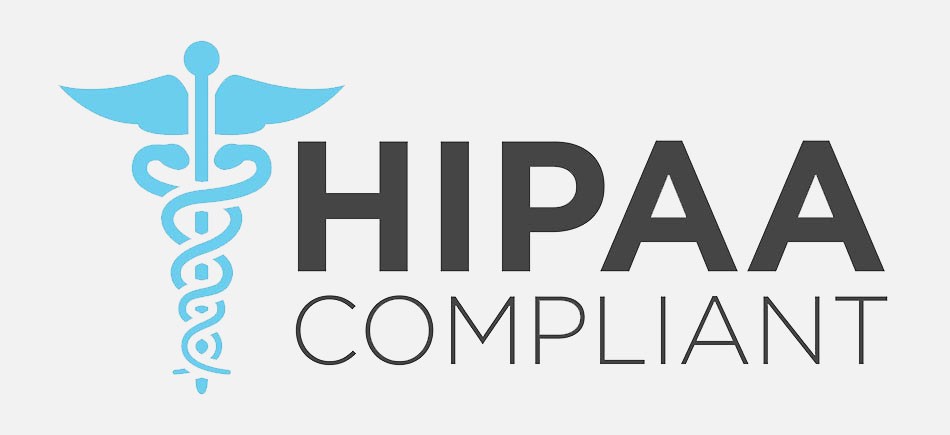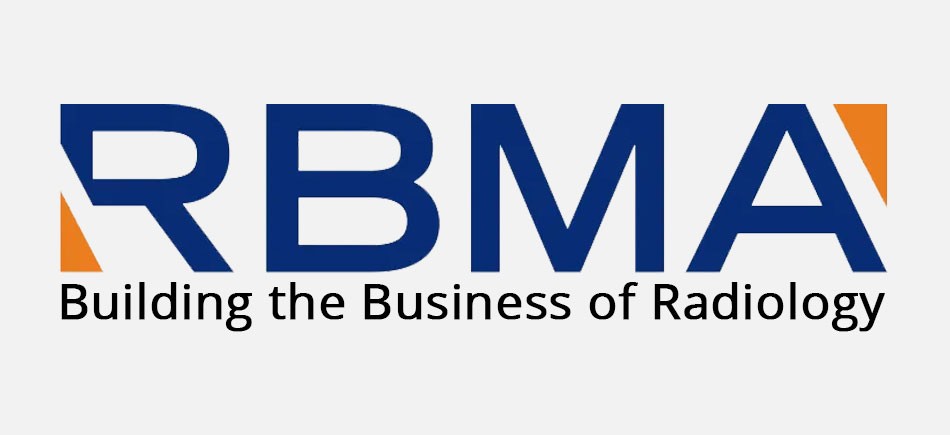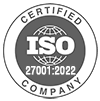How Healthcare Data Analytics is Changing the Face of the Healthcare Industry?

Healthcare data analytics is witnessing an exponential growth as an industry and more than 90% of the payers agree that it is the future. Every person on the planet whose healthcare data is recorded & stored is its potential beneficiary. In the near future, we can foresee an individual specific healthcare treatment plan becoming universal.
In this article, we have tried to uncover a few aspects of data analytics in healthcare and elucidated our findings & opinions on how healthcare data analytics is changing the face of the healthcare industry.
8 Ways Data Analytics is Transforming Healthcare
Imagine yourself in a situation where you require a few sutures, and the procedure is not covered under your current health insurance plan. There can be a few similar scenarios where a simple unwarranted incident leads to accidents, which may not be covered under your insurance plan. Now, what if machine learning can accurately tell you whether the procedure is covered under your insurance plan or not? If yes, then, what will be the cost of the procedure. This will save a significant amount of time and resources, both for you and your physician.
Healthcare data analytics can balance out a doctor's time, cost factor, and health coverage. It can help a healthcare receiver to decide which hospital and doctor to consult. As a provider, health analytics will sort a tremendous amount of your manual effort required in doing the administrative work.
A few reasons, other than the ones mentioned above are -
-
Helps Bring Visibility with Powerful Solutions

Health analytics can be the savior in the expensive healthcare sector.Here is how it can substantially reduce the healthcare administrative costs -
- The providers can leverage analytical solutions, like Big Data to enable digital methods & tools to collect, store and track the patients' records. It will help in providing real-time analysis of a disease and reducing the inaccuracies of disease assessments
- Moreover, the current and emerging smart devices like smartphones, wearable devices, IoT applications, etc., can assist people to track their fitness and interact with doctors, physicians, etc. in real time
- As a provider, you can leverage the power of data analytics to theorize and implement various technologies including, image processing, digital health, mobile platforms, IoT, etc., and use computational methods like Artificial Intelligence & Machine Learning to develop medical solutions that can be applied to people of all resource levels
- You can also seek the global customers by sketching the real-time insights into your local masses and can establish a strong global foothold late
-
Improves Transparency and Value in the Healthcare Service

The ever-increasing claims data and EHR data coupled with the potential of data analytics can improve transparency and provide better care for a specific medical service.
The reason being, waste minimization, in terms of time and resources, which is usually concentrated around the planning a service. Health analytics give you a perfect figure of price vs. outcome ratio for a specific service. -
Initiates Personalized Medicine

The medical industry is collating a massive amount of data but facing issues in storing and managing those. They either collate the primary & secondary data and do a statistical analysis or leverage the historical data and use analytical tools to draw the patterns. The prime motive, however, should be to use the electronic health records and combine that with the clinical and socioeconomic information and then implement analytics to observe patterns in a particular treatment.
Healthcare data analytics has been playing a major role in devising personalized medicine strategies with the help of machine learning to proffer the best treatment option for the patients. It helps the physicians to be more precise, proactive, and impactful. If you hail from a small to medium healthcare organization, you can also capitalize from the developments in the personalized medicine. A few benefits are -- It has a human-centered design, which opens the door for new competencies and engagement models, where the patients are considered as a partner
- The satisfaction level of the patient shots up to a considerable level, giving you the opportunity to provide efficient and sustainable models of care
-
Helps in Strategic Planning

Using the healthcare data analytics tools, you can analyze the patient check-up records and can access the public health data to prepare a heat map and pinpoint the desired issues. It can be country or region specific, like population growth, or can be age-wise, like finding the pervasive chronic diseases. Health analytics can also sort out the factors that discourage people from going for treatment. This will allow you to devise a strategy to improve your care in the problematic areas.
-
Manages Genomics and Health Data

The recent developments in the healthcare data analytics can help you manipulate, analyze and manage the genomic and health data to implement the genomic medicine. And by utilizing the NGS (Next-generation sequencing) and EHR data, you can ask your vendor to help you with the tools to improve the clinical research and its outcome.
A few major advantages of using health analytics in genome medicine include:- Genome medicine, with the help of data analytics, can successfully build personalized strategies for diagnostic or therapeutic decision-making
- It can uncover the hidden patterns and sort out the co-relations by examining the large datasets
- It can help find the actionable genetic variants for individualized diagnosis or therapy
-
Increases Quality Care through Precision Medicine

Precision medicine initiative leverages the power of data analytics in healthcare, genomics, and healthcare information technology to analyze the data set(s). There are vast investments and research, both government and private, happening in the precision medicine field.
- It is an initiative that can boost the new patient-powered research model
- It can accelerate the biomedical discoveries and provide the physicians, doctors, and clinicians with new tools and information to move ahead with their treatment plan
- It has an out-of-the-approach that takes into account the individual differences in the patient's genes, lifestyle, and environment
- It also helps the physician to understand the complex workings of a patient's health and predict the correct diagnosis
-
Improves Computational Medical Treatment

Computational medicine leverages the computer models, analytics and quantitative approach to figure out the root causes of disease and its diagnosis. If you have sufficient clinical data, you take the help of an expert healthcare data analytics support provider to build models to answer some unanswered medical questions
- You can figure out how a disease develops
- Unravel the medical mysteries - you can put the pieces of the puzzle together with better insights into the data
- Understand the environment's role in a patient's wellbeing
- Comprehend the biological systems and how it changes from a healthy to an unhealthy state
-
Boosts Clinical Decision Support System

If you want to know the best care available for a particular disease in your vicinity, you no longer have to depend upon the word of mouth. Healthcare data analytics can help you narrow down your choices and allow you to choose one. This way, the healthcare information system that uses revenue cycle management, clinical software and business intelligence will become more and more prevalent. Healthcare data analytics system can consolidate all your findings and access the decision support system easily. Clinical decision support system powered by analytics can:
- Give person-specific information
- Reduce the clinical variation and duplicative testing
- Help you harness the Big Data insights
- Aid you in sifting through the gigantic healthcare data
- Assist you in improving the quality of care
- Enhance the health outcomes
- Reduce errors and any adverse events
- Saves cost for both the provider and payer
The scope of health analytics is expanding day by day and have emerged as a discipline. It has an invigorating effect on the medical organizations and presents a huge opportunity to make the establishments agile and efficient.
Key Healthcare Data Analytics Stats
Healthcare organizations today, are clutched in the non-core areas of their expertise and encounter enormous challenges to fully concentrate on the patient care. A few stats to support the statement are -
- According to National Health Spending Projections, US, the collateral expenditure is increasing every day, surpassing $10,000 per person with an annual increase of 5.8%
- As per the 2013 Mckinsey report, healthcare expense in the USA soared to around $600 billion, accounting for around 18% of the country's GDP
According to a recent survey from Ernst & Young, a staggering 91% of the US health organizations have or plan to undertake at least one tech adoption resources in the next twelve months to upgrade their patient experience.
How to Leverage Healthcare Data Analytics to Transform Your Healthcare Services?
There is a dire need to leverage health analytics to transform the healthcare sector. As a provider, you can collaborate with software vendors who can help you in collating your healthcare data and building analytical solutions around it. Moreover, the healthcare data are stored electronically, which can allow you to use statistical, analytical and mathematical tools to derive at accurate conclusions.
Collect Healthcare Data to Improve Treatment and Health Outcome
Hospitals are still entrenched in the century-old method of staff organization. Those are hierarchical, including, nursery, surgery, etc., which clearly defines, each participant's function and obligations. As a provider, you need to reduce the waste (time and resource), standardize your process, and work on improving the patient safety, which can be done via healthcare data analytics. This can be taken further by following the best practices of the knowledge gathered from the analysis. You can initiate the systematic interpretation of data in the following two ways -
- Unlock your data - find all the sources of health records
- Put the collated data in an enterprise data warehouse (EDW)
The time saved in the manual gathering of data can be used to discover patterns in the data and later on can be leveraged to find the root causes and make changes. Although health analytics cannot substantiate or replace the doctors, it can, however, play an essential role in providing better care.
Focus on Correct Methods of Data Collection
The real concern for the entire provider community is the method of data collection, which sadly, has not been yet systematic. While, there are a few silver linings as well, but far off in New Zealand! One example, which stands above the others, is the country's tactical healthcare management via analytics. The providers, with real-time data at their disposal, are successfully able to reach out to their community and track their patients' health progress.
The source of data can be both internal and external.
- The internal sources will include electronic health records (EHR), clinical decision support systems, CPOE, etc.
- The external sources can come from the government sources, pharmacies, insurance providers, laboratories, etc.
In case, you adopt any new healthcare analytical tool and do not have access to large data, you can adopt a research method to collect the data, which suits the project at hand. This will include -
- A few focus groups
- Collection of social media data
- Clinical data and data accumulated through in-person promotions
- Long-range in-home consumer tests data - for this, you can seek clinics and private doctors who can test the device(s) and collect data for further analysis
- You can also tie-up with major hospitals that have a bulk of data for the testing of the device
Partner up with a Vendor Who Can Provide Comprehensive Healthcare Analytics Services
There are several vendors in the market today who offers solutions to cater to your narrow healthcare needs. You should not be drawn towards their haphazard analytical tools or solution. Create a framework for evaluating your needs, and work on creating a roadmap to measure your progress and health data analytics adoption.
Conclusion
Healthcare Data Analytics Will Open New Possibilities in Healthcare by providing Tools & Insights to Monitor and Manage Patients' Wellbeing.
The impact of data analytics in healthcare will be revolutionary in the coming years, where the physicians can successfully identify any disease outbreaks. With consolidated and precise data at hand, the researchers and pharmaceutical companies can bring their medicine in lesser time. All of these will help the government considerably reduce their healthcare spending.
Thus, the future of healthcare in data analytics seems to reinvent the practice of medicine. The healthcare data from both internal and external sources can provide new insights, leading to improvement in patient care and administrative operations. By exploring the process to constantly make data-driven decisions, as a provider, you can do more than endure in the field. You can make a major difference in your patient's wellbeing.
Partner with Outsource2india - The Best Healthcare Data Analytics Services Provider
At Outsource2india, we have collaborated with experts in the healthcare data analytics and data science domain to provide solutions to our global healthcare clients. Our healthcare professionals have worked in laboratories across the world and our workstations are equipped with the latest technology powered by Big Data, Artificial Intelligence, Deep Learning, and Machine Learning.
We can build a personalized dashboard, healthcare data analytics platforms which will allow you to gain a deeper understanding of your patients' well-being and help identify the potential diseases and plan the treatment approach. We can help integrate data from your EHR & EDW and leverage it to build models which will help you achieve the estimated ROI.
Get in touch with us for a free assessment and know how we can become your partner of choice in the field of healthcare data analytics.

Get a FREE QUOTE!
Decide in 24 hours whether outsourcing will work for you.
Have specific requirements? Email us at: info***@outsource2india.com
USA
116 Village Blvd, Suite 200,
Princeton, NJ 08540
Key Differentiators
Software At O2I Healthcare
Specialties HIPAA Compliance HIPAA 5010
Standards Compliance CPT Coding
Compliance Healthcare
Processes Medical
Billing Process Charge
Entry Process Medical
Coding Process Medical
Claims Process FAQs on Medical Accounts
Receivable Services FAQs on Outsourcing
Claims Adjudication Services Medical
Transcription Process HL7 ICD-10 Compliance
-
 Outsourcing Medical Billing Services - Evaluating its Impact on Your Practice
Outsourcing Medical Billing Services - Evaluating its Impact on Your Practice
-
 US-based Healthcare Research & Consulting Firm Approached O2I For Medical Transcription Services
US-based Healthcare Research & Consulting Firm Approached O2I For Medical Transcription Services
-
 Outsource2india Provided Patient Onboarding Services to a Leading Healthcare Company
Outsource2india Provided Patient Onboarding Services to a Leading Healthcare Company
-
 Outsource2india Assisted a Florida-based Medical Billing Company with ICD-10 Implementation
Outsource2india Assisted a Florida-based Medical Billing Company with ICD-10 Implementation
-
 Caribbean Radiologists Got STAT Reports Automation Services from Outsource2india
Caribbean Radiologists Got STAT Reports Automation Services from Outsource2india
-
 Outsource2india Helped a Medical Imaging Firm with Quick Teleradiology Services
Outsource2india Helped a Medical Imaging Firm with Quick Teleradiology Services
















 \
\
